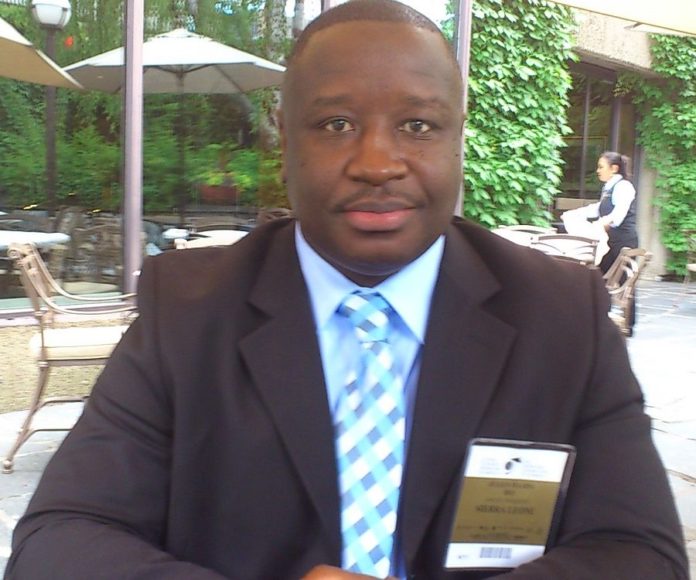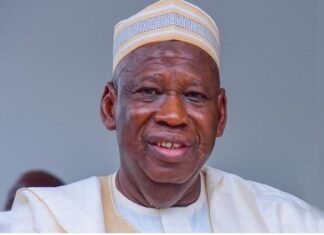By Emeka Umejei
One of the most difficult tasks of leadership in sub-Saharan Africa is to countervail an established narrative of a third-world-country on the global stage.Attempts to produce counter-narratives of a third-world country on the global stage is often considered an uphill task because it entails influencing perceptions and attitudes. Therefore, narratives are constructed and not imposed. It must be built from scratch through the conscious effort of a perceived reformer, who is keen on charting a different course of events.
But it has been done in some countries in sub-Saharan Africa. Paul Kagame has succeeded in constructing a new narrative of Rwanda from genocide to prosperity and in Mauritius, we have seen narratives of economic stability and good governance emerge, over time. However, it takes determination, selflessness, conscious application of workable policies and consistency of purpose to construct a new narrative of a country. But it is more difficult to construct a new narrative when such a country is formerly war-torn. This was the case of Sierra Leone; buffeted by War, marooned by epidemics(Ebola, HIV/AIDS), desecrated by natural disasters (mudslides, floods), castrated by corruption,and demeaned by poor leadership. In addition, Sierra Leone is classified as a Least Developed Country (LDC), which means that it exhibits some of the lowest indicators of socioeconomic development.Hence, to counter the established narrative of Sierra Leone requires a new approach to governance; a new way of doing things. This was the situation when Julius Maada Bio (JMB) took the reins of governance in Sierra Leone on April 4, 2018;there was much expectation as well as trepidation. People did not know what to expect because of lack of good leadership over the years but Maada promised to chart a different course for Sierra Leone.Maada is a man of history; he is part of a league of soldier-democrats on the African continent, who returned their countries to democratic governance (others are Nigeria’s Olusegun Obasanjo and Mali’s Amadou Toumani Toure).As promised, Maada took office and hit the ground running. One year after, evidence abounds that something good is happening in Sierra Leone; a new narrative of Sierra Leone is under construction and the enablers are not resting on their oars.The first sign that Maada was on a mission to restore Sierra Leone to the path of glory was the fulfilment of one of his campaign promises to introduce free education in primary and secondary schools in Sierra Leone. This he did on his first address to the Sierra Leone parliament. “Free education will be introduced effective September 2018 for all primary and secondary schools to improve access to quality education,” Bio announced at the opening of the parliament in May 2018. Free education at primary and secondary school levels will create the requisite human capital force to support the private sector in Sierra Leone. If Sierra Leone gets it right with human capital development, it will enhance economic development in the country. One of the criteria that inform the classification of Sierra Leone as a Least Developed Country is human resources weakness. This means that indicators such as nutrition, health, education, and adult literacy are lacking. But Bio is well-prepared to change this narrative and this is encapsulated in the flagship programme of his government known as Human Capital Development. He expatiated on this during a recent visit to Harvard University: “Our definition involves three components: quality education to feed the brain, food security to make sure that the tummy is full, and a good health-care system to take care of the welfare of the whole human being. When those are in order, then the human being can achieve its highest potential. That is our belief, and that is our definition of human capital development. It is expensive, but we have to take it on. We cannot be on a flimsy foundation, and that is why we are taking that on.”
The new narrative under construction in Sierra Leone is not limited to Human Capital Development. In fact, Bio is considered to have made tremendous progress on the economic front. Before he took office, the Sierra Leoneaneconomy wasin the emergency wardand the International Monetary Fund (IMF) had abandoned the country because of poor governance and endemic corruption. Conscious of this difficulty, Bio came to office with a bold vision and determined to restart Sierra Leone from scratch. While this could be considered Herculean, Bio was prepared for it. First, Bio sought to block leakages and fight corruption to a standstill. In the crusade against corruption, there is no respecter of persons, the rule of law is supreme. The government has also implemented expenditure controlling measures across all levels of government and ensured proper revenue collection. For instance, domestic revenues collected during 2018 increased to Le 4.35 trillion or 14.0 percent of GDP compared to Le 3.34 trillion or 12.6 percent of GDP in 2017, an increase of about Le 1.0 trillion. In the same vein, domestic revenue generated from April 2018 to March 2019 amounted to Le 5,086,696.6 trillion, a monthly average of Le339,113.1 billion, far exceeding the monthly collection of Le 192,422.5 billion for 2016 to March 2017. The increase in domestic revenue mobilisation stems from the implementation of key revenue enhancing measures such as streamlining of duty and tax waivers; implementation of the Treasury Single Account; converting the NRA Transit Accounts into sub-Treasury Account out of which payments are swept and transferred into the Consolidated Revenue Account on a daily basis; liberalization of fuel prices and streamlining the payment of excise duties; and stronger enforcement of tax compliance.
Through these fiscal measures, the Bio administration has blocked leakages in government and saved monies that are ploughed back into running the administration effectively. For instance, the government has successfully paid salaries on time in the last one year, unlike the previous administration, which had to borrow money to pay. One of the most important economic achievement of Bio’s administration was the relaunch of the Extended Credit Facility (ECF) with the International Monetary Fund (IMF), which derailed under the previous administration due to non-implementation of structural measures agreed with the IMF. Consequently, a new ECF programme for SDR124.44 million (about US$172.1 million) was approved for Sierra Leone by the IMF.
In addition, Sierra Leone is reputed for its natural resources, but much is not known about its contribution to the economic growth of the country because of mismanagement. But Bio is working tirelessly to change this narrative through an ongoing geological survey of the country’s mineral assets. This will help Sierra Leone exit ‘resource curse’ that has seen many African countries that are rich in natural resources suffer poor economic growth. Besides its natural resources’ endowment, Bio is also keen on diversifying the Sierra Leonean economyto fisheries, tourism, and agriculture.
While we must acknowledge that the task of constructing a new narrative of Sierra Leone on the global stage is enormous, Julius Maada Bio is working earnestly to achieve it. Maada Bio is not a magician, but he has history behind him. It takes men of history to make history and Maada Bio appears right on track.
.Emeka Umejei, PhD is a media scholar. He can be reached at @emekaumejei.












